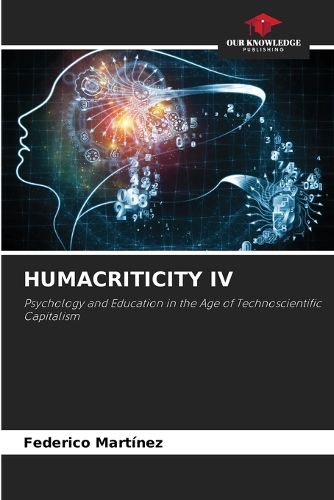Readings Newsletter
Become a Readings Member to make your shopping experience even easier.
Sign in or sign up for free!
You’re not far away from qualifying for FREE standard shipping within Australia
You’ve qualified for FREE standard shipping within Australia
The cart is loading…






Federico Martinez Gutierrez's "HUMACRITICITY IV: Psychology and Education in the Age of Technoscientific Capitalism" delves into the profound transformations that education has undergone under the influence of technoscientific capitalism. This fourth installment by the author explores the implications of an educational system increasingly aligned with market demands and technological advances, questioning whether we are forming complete and critical individuals or simply efficient workers and obedient consumers.Through a rigorous and grounded analysis, the author invites readers to reflect on the true purpose of education. He proposes to recover a humanistic vision that promotes autonomy, creativity and critical thinking, reviewing and questioning current educational practices to ensure the integral well-being of learners. The book is structured in several chapters that address different aspects of the intersection between psychology, education and techno-scientific capitalism, providing both theoretical foundations and practical strategies.
$9.00 standard shipping within Australia
FREE standard shipping within Australia for orders over $100.00
Express & International shipping calculated at checkout
Federico Martinez Gutierrez's "HUMACRITICITY IV: Psychology and Education in the Age of Technoscientific Capitalism" delves into the profound transformations that education has undergone under the influence of technoscientific capitalism. This fourth installment by the author explores the implications of an educational system increasingly aligned with market demands and technological advances, questioning whether we are forming complete and critical individuals or simply efficient workers and obedient consumers.Through a rigorous and grounded analysis, the author invites readers to reflect on the true purpose of education. He proposes to recover a humanistic vision that promotes autonomy, creativity and critical thinking, reviewing and questioning current educational practices to ensure the integral well-being of learners. The book is structured in several chapters that address different aspects of the intersection between psychology, education and techno-scientific capitalism, providing both theoretical foundations and practical strategies.